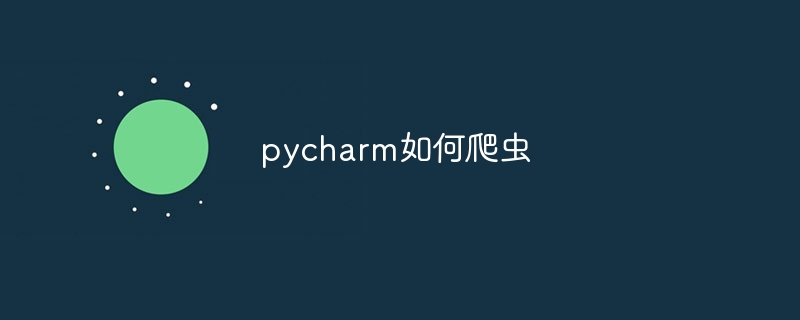Home >Backend Development >Python Tutorial >How to crawl pycharm
How to crawl pycharm
- 下次还敢Original
- 2024-04-25 01:30:251686browse
Using PyCharm for web crawling requires the following steps: Create a project and install the PySpider crawler framework. Create a crawler script, specify crawling frequency and extraction link rules. Run PySpider and check the crawl results.

Using PyCharm for web crawling
How to use PyCharm for web crawling?
Using PyCharm for web crawling requires the following steps:
1. Create a PyCharm project
Open PyCharm and create a new Python project.
2. Install PySpider
PySpider is a popular Python crawler framework. Install it by running the following command in the terminal:
<code>pip install pyspider</code>
3. Create the crawler script
Create a new file in your PyCharm project, for example myspider. py. Copy the following code into the file:
<code class="python">from pyspider.libs.base_handler import *
class Handler(BaseHandler):
@every(minutes=24 * 60)
def on_start(self):
self.crawl('https://example.com', callback=self.index_page)
def index_page(self, response):
for url in response.doc('a').items():
self.crawl(url)</code>
In the above code, the on_start method specifies that https://example.com be crawled every 24 hours. The index_page method parses the response page and extracts links from it for further crawling.
4. Run PySpider
Navigate to your project directory in the terminal and run the following command:
<code>pyspider</code>
This will start PySpider and run your crawler script.
5. Check results
PySpider will save the crawled data in the data/ directory. You can view these files to verify the crawl results.
The above is the detailed content of How to crawl pycharm. For more information, please follow other related articles on the PHP Chinese website!

